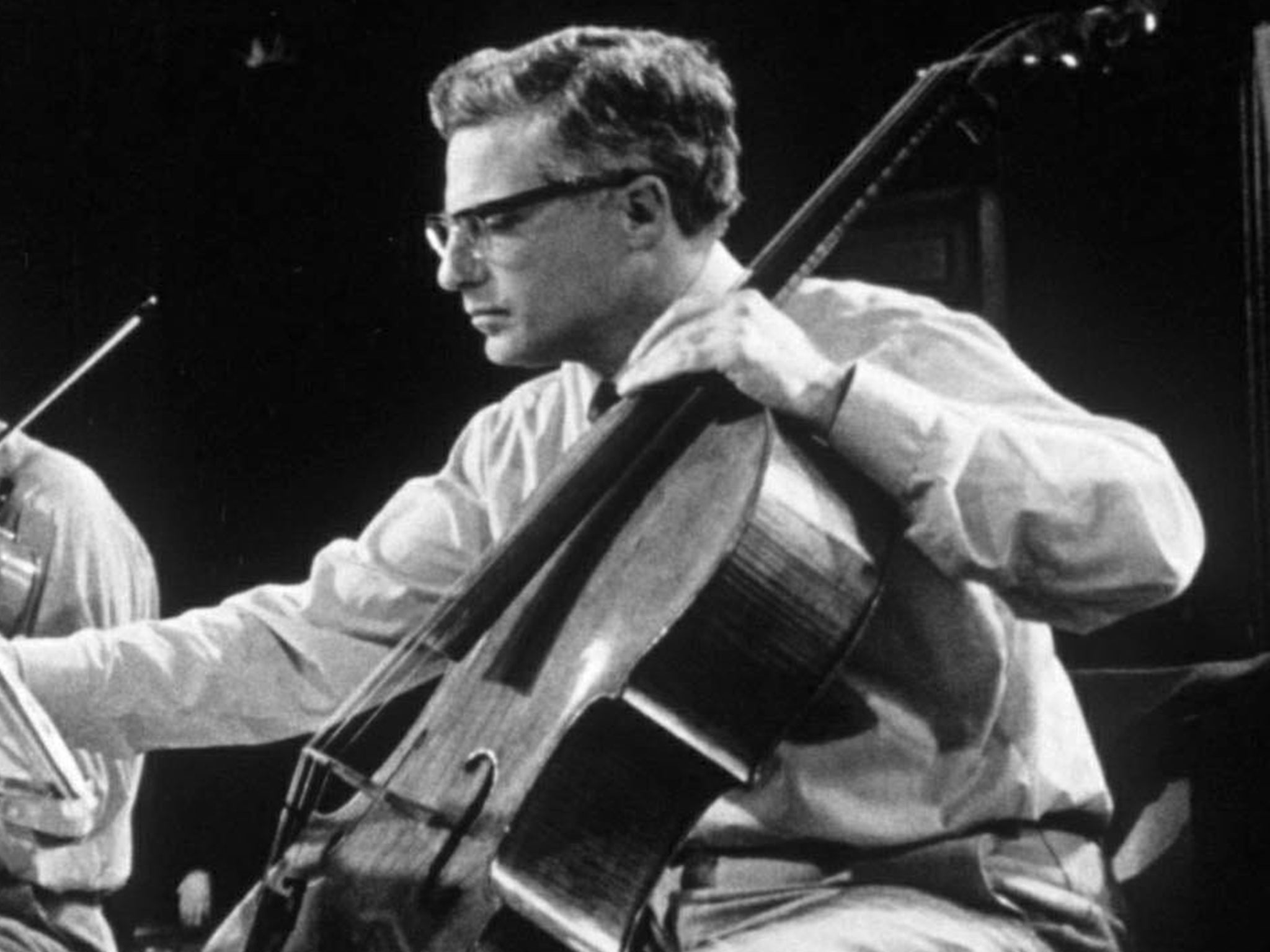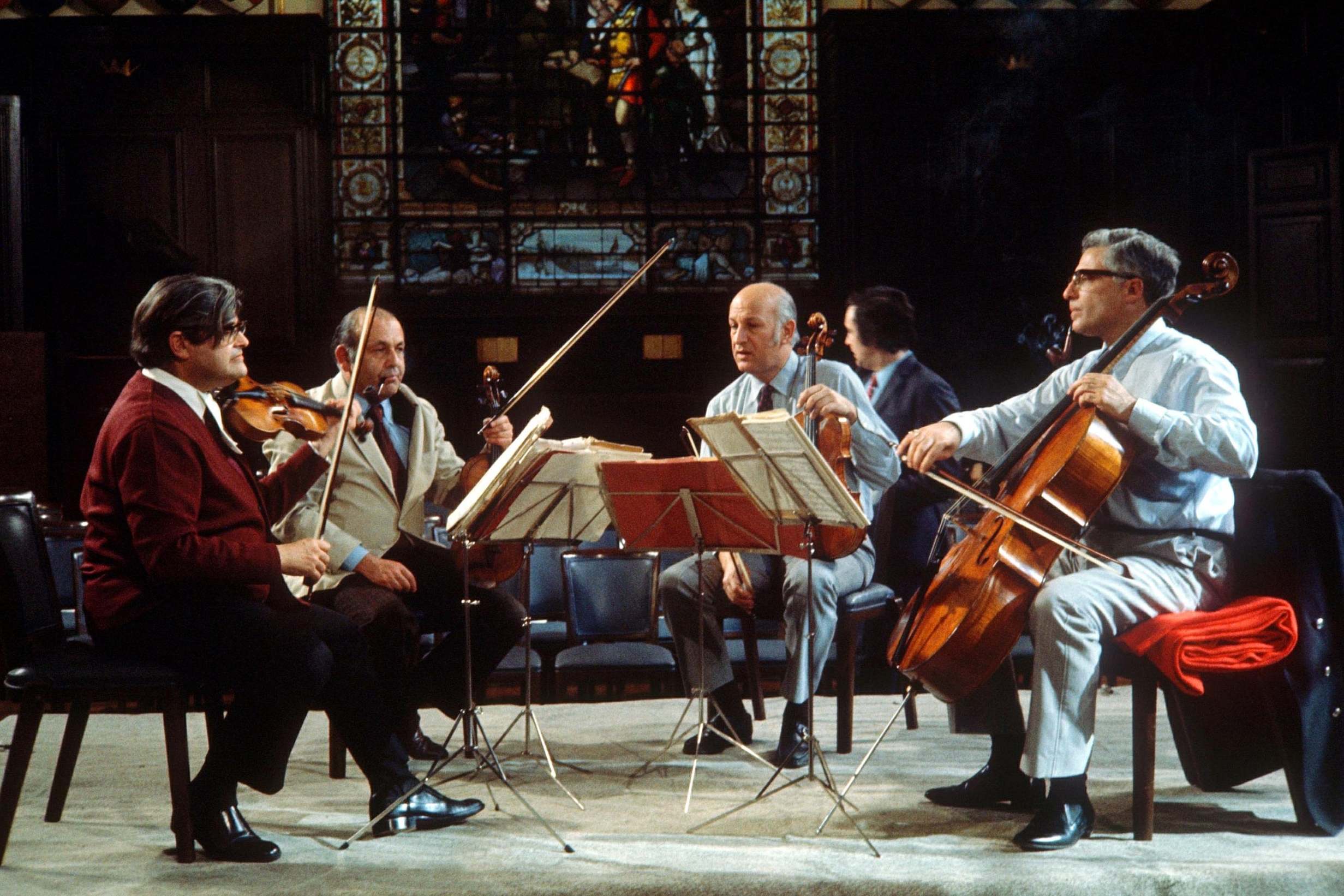Martin Lovett: Cello master and last survivor of the Amadeus Quartet
He was part of the 20th century’s foremost British string ensemble

Your support helps us to tell the story
From reproductive rights to climate change to Big Tech, The Independent is on the ground when the story is developing. Whether it's investigating the financials of Elon Musk's pro-Trump PAC or producing our latest documentary, 'The A Word', which shines a light on the American women fighting for reproductive rights, we know how important it is to parse out the facts from the messaging.
At such a critical moment in US history, we need reporters on the ground. Your donation allows us to keep sending journalists to speak to both sides of the story.
The Independent is trusted by Americans across the entire political spectrum. And unlike many other quality news outlets, we choose not to lock Americans out of our reporting and analysis with paywalls. We believe quality journalism should be available to everyone, paid for by those who can afford it.
Your support makes all the difference.The cellist Martin Lovett, who has died aged 93, was one of the 20th century’s most distinguished chamber musicians. An outstanding teenage prodigy, he went on to become the only English-born member of the legendary Amadeus Quartet, serving from its inception in London in 1947 until it disbanded 40 years later.
The group enjoyed a global career as top-flight concert and recording artists. After their dissolution in 1987, Lovett played less and taught more, helping to mould the creative personalities of many of this country’s most eminent musicians.
He was born in Stoke Newington, north London, into an Anglo-Jewish family of Ukrainian descent, the youngest son of a professional musician. His childhood was somewhat nomadic, his father’s career taking him all over the country.
In 1942, aged 15, he won a scholarship to the Royal College of Music where he studied with the cellist Ivor James. He further refined his technique on the instrument in the company of Maurice Gendron, Pierre Fournier, William Pleeth and Douglas Cameron.
In 1946 he was in the orchestra for the first performance of Benjamin Britten’s opera The Rape of Lucretia, conducted by Ernest Ansermet at Glyndebourne. He later became the principal cellist in the orchestra at Sadler’s Wells.
At the RCM Lovett first met his future wife, the Hungarian-born violin virtuoso Suzanne Rosza. When later studying with the violin teacher Max Rostal, she introduced him to three fellow Rostal pupils who were all Austro-Jewish refugee violinists: Norbert Brainin, Peter Schidlof and Siegmund Nissel. The four clicked immediately and formed a group.
Lovett’s three future colleagues had arrived separately in England after the Anschluss in 1938 and had met in internment camps, having been classed as enemy aliens during the early part of the war.
With Schidlof moving to viola, the four adopted the name the Brainin Quartet and embarked on 12 months of intensive rehearsals followed by their first public performance at the Dartington International Summer School.

They were briefly called the London Vienna Quartet but settled on the name the Amadeus Quartet ahead of their London debut at Wigmore Hall on 10 January 1948.
They quickly consolidating their position as the leading British quartet of their time, and over the next four decades regularly spent eight months of the year on the road, playing at concerts and festivals and giving master classes all over the world.
In 1949 they cut their first disc, a 78 recording of Priaulx Rainier’s Quartet No 1; they went on to make more than 200 recordings including the complete quartets of Beethoven, Brahms and Mozart. Lovett revelled in the unique opportunity afforded him by the acquisition of a magnificent instrument by the 18th century craftsman Antonio Stradivari.
While their staple repertoire was perhaps unsurprisingly the Viennese classics – Beethoven, Schubert, Mozart and Haydn, all delivered with a richly rounded tone that invariably gave a nod to the group’s ancestry – full bow strokes were the order of the day. They also delighted in more newly minted repertoire, quartets by Bela Bartok, Michael Tippett, Egon Wellesz, Peter Racine Fricker, Matyas Seiber and Arwel Hughes.
They were regular favourites at Aldeburgh for more than 30 years, and Benjamin Britten wrote his Third Quartet for them, which they played it at his bedside just days before his death in December 1976. Two weeks later they gave the work an emotional premiere at Snape Maltings.
Peter Schidlof died in 1987: the other members soldiered on for a time as the Amadeus Trio, then focused on the Amadeus International Summer Course at the Royal Academy of Music, launched as a monument to their late colleague.
In 1998 Muriel Nissel’s account, Married to the Amadeus: Life with a String Quartet, laid bare the many corrosive undertones that often erupted in the rehearsal room of this Hampstead-based ensemble. However, whatever disagreements each may have had offstage, they were always fully resolved by the time of performance. Norbert Brainin died in 2005 and Siegmund Nissel three years later.
Lovett married Suzanne Rosza in 1950; she died in 2005. He is survived by his second wife, Dorinde van Oort, and a son and daughter from his first marriage.
Martin Lovett, cellist, born 3 March 1927, died 29 April 2020
Join our commenting forum
Join thought-provoking conversations, follow other Independent readers and see their replies
Comments